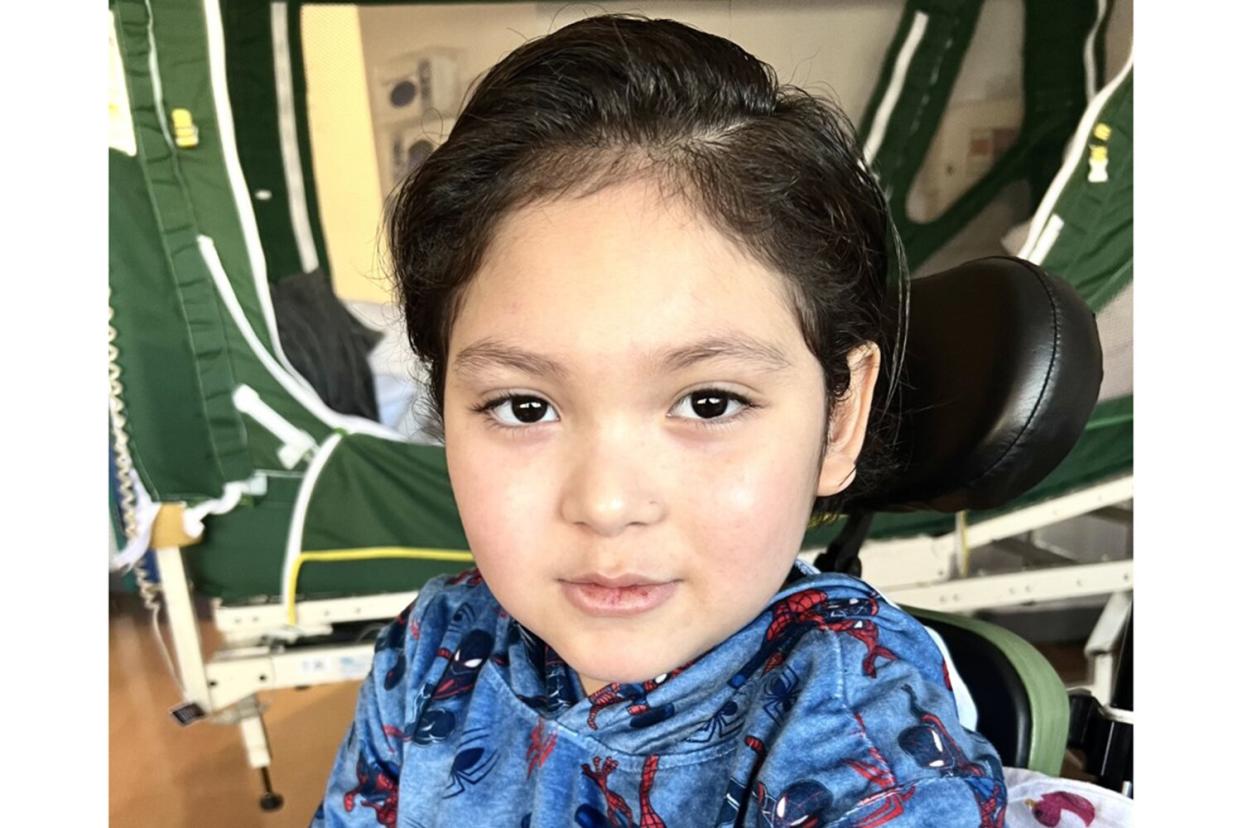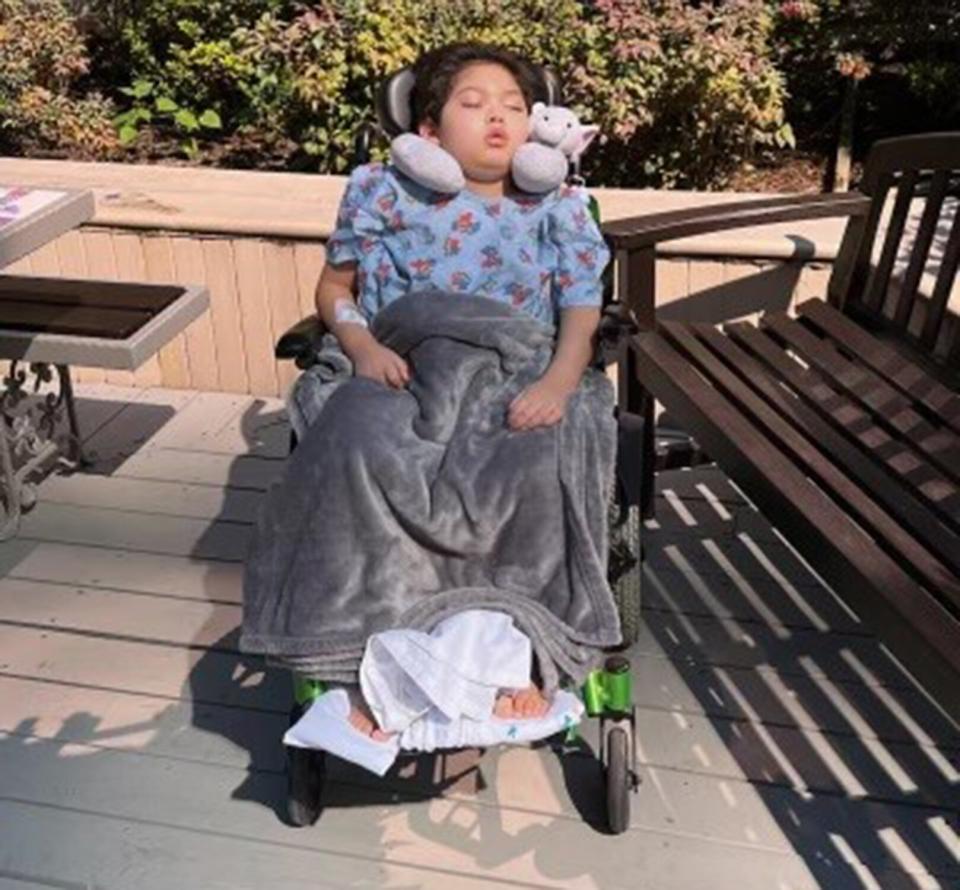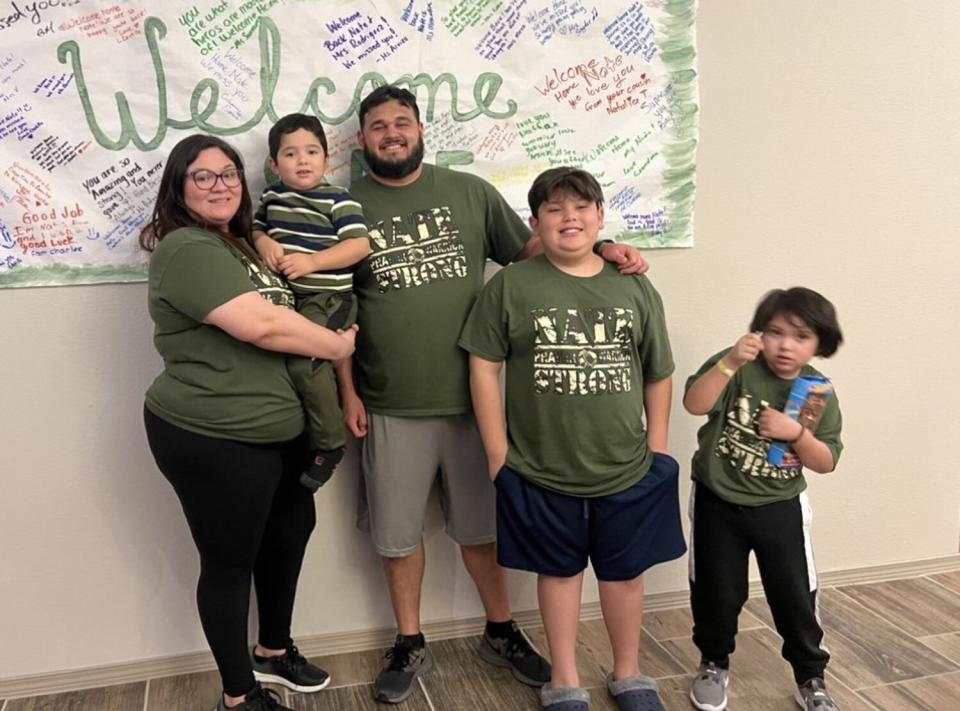Recovering from Multiple Seizures and Autoimmune Encephalitis, Texas Boy Hopes to Go to 2nd Grade in Person

courtesy Texas Children's Hospital Nathan Camargo
Two weeks before kindergarten graduation, 5-year-old Nathan Camargo had his first seizure. The El Paso boy was eventually diagnosed with autoimmune encephalitis, a condition where his immune system was attacking his brain. He spent nearly eight months in the hospital fighting for his life, his mother at his side.
"You can't give up. You have to be strong," his mother, 35-year-old Jessica Rodriguez tells PEOPLE. "As helpless as you might feel, especially with doctors telling you, 'I don't know which treatment will help,' You just have to stay positive. You can't give up on your child."
On Tuesday May 17, 2022, Nathan had a seizure in gym class. He was rushed to the emergency room, given a CT Scan and kept overnight, but all the tests came back normal. He went back to Robert R. Rojas Elementary on Friday morning, and had a second seizure at the same time of day.
Nathan was again rushed to the emergency room, given an MRI and this time sent home with anti-seizure medication. Nathan didn't seem like himself the next week. On Memorial Day, he woke his mother up at 4 a.m. saying his arm hurt. That morning he had a third seizure and was admitted to the hospital.
Within a week, the little boy couldn't walk, talk or even eat.
"He just completely lost control of his body, he couldn't move," Rodriguez says.
"His arms were shaking, his legs were shaking, and they would shake day and night because he didn't have control," his mother remembers. "It was scary. It was hard. As a mom, you feel helpless."
About a month later, Nathan was diagnosed with Anti-NMDA receptor encephalitis, also known as autoimmune encephalitis, a brain inflammation where the body's immune system mistakenly attacks healthy brain cells.

courtesy Texas Children's Hospital Nathan Camargo
On July 7th, 2022 – just four days before his sixth birthday – Nathan was transferred to Texas Children's Hospital in Houston in a comatose state, more than 700 miles from home.
"I stayed by his side," says his mother, a single mom of three boys – Nathan is the middle child. "I didn't leave him, ever. I stayed in the hospital every single day."
About 4,000 people in the US are diagnosed with this auto-immune condition each year, according to the AE Alliance. There are many forms of encephalitis, but this is the most common form of encephalitis in children, Nathan's doctors tell PEOPLE.
Rodriguez's parents and her boyfriend (now fiancé) stayed in El Paso and took care of Nathan's brothers.
"I had one doctor say, 'He's not going to be the same after this. He might not even be able to go to school. He's not going to be the same kid that you're used to seeing.' And I would tell them, 'No, he will be.' And I'd stay positive, and I'd just keep my faith in God that everything was going to be okay, and that helped me get through every day."
Usually, after about three months of treatment, patients begin to get better, says Dr. Eyal Muscal, Chief of Rheumatology, Texas Children's Hospital. But Nathan got worse before he got better.
Nathan's seizures were more frequent and more aggressive than most patients, Muscal says. When asked how many seizures he had, his doctors say it's impossible to answer since he had so many every day.
Nathan hadn't responded to initial steroids and immunotherapy treatments "to help his brain stop being attacked by the body and to help calm that inflammation in his brain down,"says Dr. Nikita Shukla, pediatric neurologist at Texas Children's Hospital.
"I think all of us were at times heartbroken by how slow things were and had to constantly give ourselves, and the family, a pep talk that we weren't done fighting," says Dr. Eyal Muscal. "We really hadn't exhausted all the medications."
Eventually they tried chemotherapy, which started working in October. Nathan opened his eyes. In November, he was able to start moving his body on his own. The day before Thanksgiving, Nathan was transferred out of the ICU.
In December, Nathan started talking again. "It was my Christmas present," his mom says.
Therapists then used Nerf guns — Nathan's favorite toy — to motivate him to re-learn how to walk. Every step he took, he was allowed to shoot the Nerf gun.
"The nurses and doctors knew if there were [Nerf] bullets coming down that hallway, it was Nathan coming," his mom says.
Nathan was discharged from Texas Children's Hospital on January 12.
RELATED: Four Brothers with Fatal Disease Fight for Their Lives: 'We Might Not Live Past Our 30s

courtesy Texas Children's Hospital Nathan Camargo's family welcomes him home
"Every day he's progressing. Every day he's getting better at doing things that he couldn't do," his mother says. "Just being with his brothers at home, playing and talking and fighting, doing what brothers do, has helped him tremendously."
Right now, Nathan is a first grader, doing homebound school as he continues to receive chemotherapy treatments through April. Nathan should continue to improve for the next year, Shukla says. Once he completes his treatments, he likely will have to take an oral immunotherapy maintenance medication.
"Since he was very sick, we probably want to put a little bit of a damper on his immune system becoming overactive again to reduce the chance of flare," Dr. Muscal says.
RELATED: 4-Year-Old Girl Nearly Dies After Strep A Leads to Flesh-Eating Bacteria: 'She Was Deteriorating'

courtesy Texas Children's Hospital Jessica Rodriguez, Nathan Camargo and family
The goal is for Nathan to return to school and attend second-grade in person this fall. He's been asking his mother if he can start playing baseball again. Nathan's baseball coach set up a gofundme to help the family.
"He's just Nathan again," his mom says. "Even though I remember him a little bit different, I can still see Nathan."
Doctors do not know for sure why Nathan got sick. To help others, Nathan's family has agreed to participate in a research study with Texas Children's Hospital.


